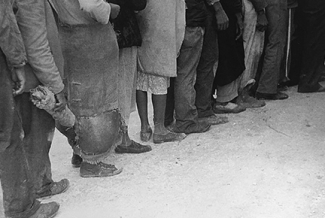May 17-19. Registration, $90 for non-members and $65 for SLSA members, is available online at southernlaborstudies.org. Several events will be free and open to the public.
Attendees from around the U.S., England, Northern Ireland and India will discuss the past and present of labor and working-class history in the U.S. South.
Panels, workshops, roundtables and keynotes will discuss many subjects including mining, farming, food processing, textiles, the nuclear power industry, foreign-owned auto factories, construction workers’ safety, black labor in the U.S. Army, Jim Crow, convict labor, anti-union sentiment, enslaved household workers and concubines in the American South and Latino/a workers. There will also be a special multimedia session on the 1991 Hamlet fire, which killed 25 workers in North Carolina.
Keynote presentations include “Heard it on the Grapevine: Slave Labor, Mobility and Power in Antebellum America” by Susan O’Donovan, the Dunavant University Professor at the University of Memphis, as well as a lunchtime keynote by Maurice Hobson of Georgia State University on the subject of his new book, The Legend of the Black Mecca: Politics and Class in the Making of Modern Atlanta.
Two authors of the multi-prize winning Like a Family: The Making of the Southern Cotton Mill World will participate as well as novelist Wiley Cash, whose forthcoming book tells the story of Ella May Wiggins, singer, spinner, single mom and martyr of the 1929 Loray Mills Strike in Gastonia, North Carolina.
Among the sessions free and open to the public are a talk by Vimal Kumar, founder of the Movement for Scavenger Community, on the collection by hand of human waste in India; two sessions on organizing in the South today; and a mini-film festival, starting at 8:30 a.m. on May 19.
Film screenings include A Strike and an Uprising by Anne Lewis; Union Time: Fighting for Workers’ Rights by Matthew Barr; The Committee by University of Central Florida faculty and students; and A Day’s Work, a film on temp work by Dave DeSario.
An extraordinary event for this or any campus to host, the history of labor in the U.S. South is easily one of the most under-examined aspects of American history and thus, a great opportunity for opening up new lines of inquiry and understanding. Kudos and welcome to the scholars, artists and filmmakers visiting UGA. Have a great conference.
Image via the Southern Labor Studies Association

